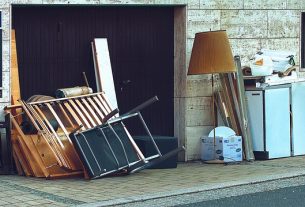Organizing and decluttering your home is key to reducing stress and improving your quality of life. Start by meticulously surveying all living spaces to distinguish between essential items and those that are just accumulating dust. This process requires mindful evaluation of each item's utility, importance, and contribution to the functionality and aesthetics of your home. Regularly assess what you use and its value to make informed decisions on keeping, donating, or disposing of possessions. Sustainable practices like the 'one in, one out' rule, designating storage areas, and adopting organizational systems tailored to your lifestyle can help maintain a clutter-free home. Implementing these strategies alongside clear containers, labels, and attractive storage solutions will aid in keeping your space orderly, supporting a more serene and efficient daily routine. Moreover, maintaining an organized home is essential for mental wellness, as it minimizes visual noise that can cause stress, leading to a calmer and more focused environment. A well-organized home not only looks tidy but also contributes to better mental health outcomes by creating a sanctuary that supports emotional calm and stress reduction. Home organization and decluttering are thus not just about tidying up but are foundational practices for promoting psychological resilience and enhancing the overall atmosphere of your living space.
Organizing and decluttering your home can transform more than just physical spaces; it can significantly impact your mental well-being. The correlation between a tidy living environment and reduced stress levels is not merely anecdotal but is supported by research. This article delves into the practicalities of achieving and maintaining a clutter-free home through “Assessing Your Space: The First Step in Home Organization and Decluttering,” offering insights into how a systematic approach can lead to sustainable results. We will then explore “Strategies for Sustainable Decluttering: Keeping Your Home Organized Long-Term” to ensure that the benefits of home organization extend beyond a fleeting moment. Finally, we’ll uncover “The Mental Health Benefits of a Tidy Living Environment: How Clutter Affects Stress Levels,” highlighting the science behind why an organized home is conducive to a calm mind. Embrace the journey towards tranquility and learn how Home Organization and Decluttering can serve as your anchor in the pursuit of mental clarity.
- Assessing Your Space: The First Step in Home Organization and Decluttering
- Strategies for Sustainable Decluttering: Keeping Your Home Organized Long-Term
- The Mental Health Benefits of a Tidy Living Environment: How Clutter Affects Stress Levels
Assessing Your Space: The First Step in Home Organization and Decluttering
Embarking on the journey to organize your home and declutter can be a transformative process that significantly impacts your stress levels. The initial phase, ‘Assessing Your Space,’ is a pivotal step that sets the tone for the rest of your organization efforts. Begin by surveying each area within your living space, noting items that serve a purpose versus those that simply accumulate dust. This careful evaluation allows you to distinguish between what adds value to your daily life and what detracts from it. Home Organization and Decluttering are not mere tasks but a mindful approach to creating an environment that promotes tranquility and efficiency. As you assess, consider the frequency of use for each item, its importance, and how it contributes to the functionality of your home. This process encourages thoughtful decision-making, ensuring that only items that enhance your quality of life remain. By systematically categorizing belongings into keep, donate, or discard, you create a foundation for an organized space that can reduce stress and foster a more peaceful living environment.
Strategies for Sustainable Decluttering: Keeping Your Home Organized Long-Term
Maintaining a clutter-free and organized home is a multifaceted endeavor that extends beyond a one-time decluttering session; it requires ongoing attention and intentional strategies. To achieve long-term organization, homeowners should adopt sustainable decluttering practices. One effective approach is to regularly assess items for their utility, sentimental value, or aesthetic contribution to your living space. By doing so, you can differentiate between what stays, what goes, and what can be repurposed or donated. Establishing designated spots for frequently used items helps in keeping them organized and accessible, reducing the likelihood of clutter accumulation.
Another key aspect of maintaining an ordered home is implementing a ‘one in, one out’ policy. This principle encourages mindful consumption and ensures that new items are balanced with the removal of old or unnecessary ones. Additionally, incorporating organizational systems that reflect your lifestyle can significantly enhance the decluttering process. Utilize clear containers, labels, and storage solutions that are both practical and aesthetically pleasing. Regularly scheduled ‘decluttering days’ can serve as a ritual to reassess and refine your home organization, ensuring it aligns with your current needs and lifestyle. By integrating these strategies into daily routines, homeowners can sustain an organized environment that supports reduced stress levels and enhanced well-being.
The Mental Health Benefits of a Tidy Living Environment: How Clutter Affects Stress Levels
A tidy living environment can significantly influence one’s mental well-being, with home organization playing a pivotal role in stress management. The presence of clutter within a home can create a visual noise that overwhelms the mind, making it more challenging to focus and relax. Studies have consistently shown that a disorganized space can lead to heightened levels of the stress hormone cortisol, indicating a physiological response to an environment that feels chaotic or out of control. Conversely, a well-organized home provides a sense of calm and order, allowing individuals to navigate their spaces with ease and reducing feelings of anxiety and overwhelm. By decluttering, individuals can create a more serene atmosphere, fostering mental clarity and promoting psychological health. The act of organizing and maintaining a clutter-free home not only improves the physical space but also has profound effects on one’s mental state, creating an environment conducive to well-being and peace of mind. Engaging in regular decluttering and organization can transform a home into a sanctuary, effectively reducing stress levels and contributing positively to overall mental health.
In conclusion, embracing home organization and decluttering is more than just a tidy space; it’s a commitment to your mental well-being. By methodically assessing your environment and implementing sustainable strategies for maintaining order, individuals can significantly reduce stress levels. The correlation between a clutter-free home and a clearer mind is undeniable, with the benefits of home organization extending beyond mere aesthetics. As you embark on this journey of decluttering, remember that the goal is to create a living space that supports your daily life and promotes tranquility. With deliberate actions and consistent effort, the rewards of a well-organized home are within reach, offering a sanctuary where peace and order thrive.



